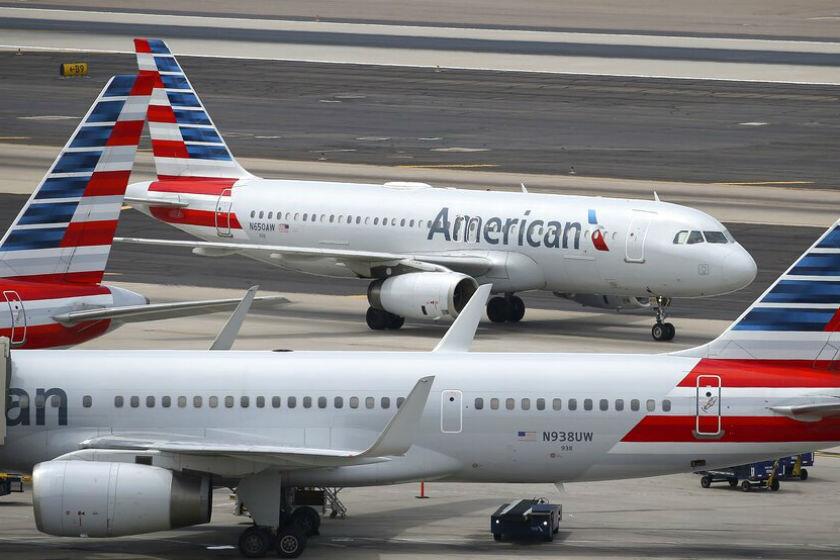Major donor to GOP helping L.A. mayoral candidate Kevin James
Dallas billionaire Harold Simmons and Los Angeles mayoral candidate Kevin James crossed paths just once.
It was an intimate cocktail fundraiser for James in the tony Montecito enclave near Santa Barbara, where Simmons owns a weekend retreat and counts Oprah Winfrey among his neighbors. Simmons, one of the top donors to Republican “super PACs” in 2012, turned to the candidate and asked, “What on Earth can you do to save L.A.?”
James, recounting the exchange, said he launched into his political pitch, railing against the city’s flirtation with bankruptcy and the power of its labor unions. “I remember him telling me he was impressed,” James said.
Later, when James made formal remarks to the group, which included a few of Simmons’ fellow Texans, the industrial magnate stood up and announced that he would give. By mid-January, Simmons had given $600,000 to an independent group backing James, making him the largest single contributor to any political committee affiliated with the L.A. mayor’s race — a sphere most often dominated by labor unions.
His contributions made it possible for a super PAC known as Better Way LA, created by GOP ad man Fred Davis, to buy half a million dollars of TV ad time last week promoting James, the only Republican in the race.
But that political help could come at a price in a city as liberal and Democratic as Los Angeles, where James needs to win over moderates, as well as conservatives, to reach a two-way runoff in May. In recent years, Simmons has funded some of the most controversial conservative groups in presidential politics, and last year he called President Obama “the most dangerous American alive.”
Simmons’ interest in city politics and a long shot like James remains something of a mystery. A corporate investor whose net worth was valued at $7.1 billion by Forbes last September, Simmons declined to be interviewed. He votes in Texas and has not contributed to any other Los Angeles city candidates in recent years, according to election records.
By the standards of his past political giving, Simmons’ support for the pro-James super PAC has been small.
In last year’s presidential race, Simmons, his wife, his companies and their employees gave $31 million to a network of super PACs that proliferated after the Supreme Court’s 2010 Citizens United ruling, which loosened the reins on political spending by corporations and labor unions, according to the Center for Responsive Politics.
“This is one of a handful of mega-donors in U.S. politics who has given extraordinary sums of money over many, many years,” said Sheila Krumholz, the center’s executive director who has monitored Simmons’ political giving for two decades. “He’s a savvy donor, somebody who is very familiar with how this game is played at the highest levels and on down.”
James, an openly gay Republican, said he knew of no specific business that Simmons has before the city. And Simmons did not mention any particular Los Angeles issue, he said.
James suggested that Simmons, 81, may be interested in elevating a moderate Republican voice statewide. Simmons has contributed to another California moderate, former Gov. Arnold Schwarzenegger, and told the Wall Street Journal last year that he was “probably pro-choice.”
“For donors who are looking for the Republican Party to be able to plant a flag again in California,” James said, “I’m the kind of Republican that’s a bigger-tent Republican.”
In that rare interview he granted the Wall Street Journal last year, Simmons said he wanted to make the U.S. tax and regulatory structure more friendly to business by electing Republicans at all levels of government. He said he hoped like-minded individuals would make political donations to help counter spending by labor unions.
In 2004, Simmons donated $3 million to Swift Boat Veterans for Truth, a group that ran ads accusing then-Democratic presidential candidate John Kerry of exaggerating his record in the Vietnam War. And during President Obama’s first run, Simmons was the sole funder of the American Issues Project, which ran TV ads tying Obama to a founder of the Weather Underground, which planned a series of bombings to protest the Vietnam War.
In his interview with the Journal, Simmons described Obama as “a socialist” who “would eliminate free enterprise in this country.”
At times, Simmons’ political contributions have tracked closely with his business interests — a network of companies that include hazardous waste disposal and metal component manufacturers.
He was a generous backer of Texas Gov. Rick Perry at a time when one of those companies, Waste Control Specialists, needed the governor’s backing to build a low-level radioactive waste disposal site, the nation’s first such new facility in three decades.
After a fierce lobbying campaign, Perry signed a law opening the way for the proposal. Perry appointees later approved the license for the $500-million site in West Texas despite concerns of some state environmental experts about potential harm to aquifers near the site. Simmons’ spokesman has said that Simmons’ connections to Perry did not work to his company’s advantage and in fact increased the state’s scrutiny of the deal.
Krumholz said Simmons’ companies span so many fields that it has been difficult to trace possible ties between his business interests and his giving even at the federal level.
“He’s kind of like the AT&T; of individual donors,” said Krumholz, noting that the telecommunications giant has interests in defense contracting and other industries. “He might have reason to be involved at various levels of government and in specific races because his investments are so diverse.”
Molly Hennessy-Fiske contributed to this report.
More to Read
Sign up for Essential California
The most important California stories and recommendations in your inbox every morning.
You may occasionally receive promotional content from the Los Angeles Times.











